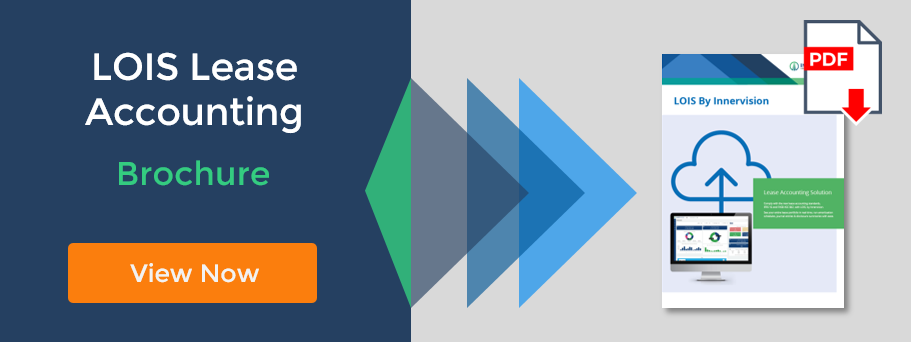How To Speed Up The Lease Accounting Data Collation Process [FREE Download]
Updated 13th October 2021 | 4 min read Published 14th September 2017
![how to speed up the lease accounting data collation process feature 2 | How To Speed Up The Lease Accounting Data Collation Process [FREE Download]](https://iris.b-cdn.net/wp-content/uploads/2017/09/how_to_speed_up_the_lease_accounting_data_collation_process_feature-2.png)
Getting to grips with how to achieve IFRS 16 compliance was one thing, but going through the data collection process is a whole other ball game.
It’s laborious and difficult to keep a grasp of timescales when you’re pulling in lease agreement information from various sources and locations. Especially when you have that nagging feeling that your colleagues do not sense the urgency with which this task needs to be completed.
Here’s how to speed up the lease accounting data collation process:
- Appoint A Dedicated Team
- Let Them Make It A Priority Action Item
- Give Them Authority
- Provide Them With The Adequate Tools
Appoint A Dedicated Team
Appointing a dedicated team solely created to collect all your lease related data is the first priority. Major companies are approaching achieving IFRS 16 compliance from a totally unprepared position.
Many businesses do not have a full and proper sense of just how big their lease portfolio is. Key leased assets, such as property and fleet vehicles, will be easy items to source the agreements of, but other items such as office equipment may be trickier to identify and prepare.
Long-term, lower value lease items such as furniture, warehouse equipment or computer servers may have been agreed by employees who have long since left the company. Indeed, some of these assets may initially have been short or medium term requirements but have now through neglect become long term and perhaps unnecessarily expensive.
So, a dedicated team is vital. Entrust no more than three employees, depending on the size of the company and how demanding it would be for one person to have the majority of their time taken up by this task. If you do not have the resource, then look to a professional outfit to supply the resource for this most important task.
Let Them Make It A Priority Action Item
Your team then needs to be able to make gathering lease accounting data a priority agenda item on their respective to-do lists. Part of why you’re worrying you won’t achieve the 1st January 2019 implementation deadline and start transitional reporting in time is because nobody in your business is seeing it as a pressing issue.
If you let your IFRS 16 compliance team make this a priority item, they have no excuse for being side tracked by other matters. Just make sure that anything that gets shunted down their list of priorities is picked up elsewhere by somebody else.
Give Them Authority
In order to make sure that the team can carry out their lease data collection with ease, make sure they are granted the authority to be able to retrieve documents and request colleagues to provide information.
They will need master login rights to all storage areas (online and offline) and be able to get the contact details of all relevant parties. It’s likely the team will need to speak to a lot of people within the business, almost like a detective following up leads, to identify leased assets, to get hold of agreement documents, invoices, figures and contact information.
Needing to get information from their colleagues means they need to have the authority to make sure digging out that contract, sourcing a telephone number or searching for an email goes to the top of that other employee’s list.
You’ll need to communicate to the entire workforce that the team has the authority to ask for information and agreements. The simplest way will be by a polite email to all staff members explaining, in brief, what IFRS 16 is, how it impacts the business and why they should respond promptly when this team is asking for any lease related information or paperwork.
Provide Them With The Adequte Tools
Once your team has managed to source the data, which should now be a timely process given that they have carte blanche access to all files and documentation, you’ll need to make the collating of the data easier.
We’ve sped up the gathering process but now all the agreement info needs sorting and comparing against the new lease accounting standards.
Only once the comparison and organising of the data is complete can the business start to make decisions on which transition option to adopt and which exemptions to apply, as well as understand what the impact of IFRS 16 will be on key financial metrics.
There are a range of tools available to make the ongoing management and accounting of lease portfolio data easier, but there are also some, like Innervision’s LOIS, which are designed to make the data upload and document storage process easier too.
LOIS is centralised, cloud-based software which can be accessed in real-time from multiple points by multiple users. It’s also a piece of software designed solely for lease accounting. It has been developed and is run by leasing experts and can provide you with additional data to compare your lease compliance progress against.
Furthermore, thanks to the industry knowledge and widespread adoption of the software, you’ll be able to rest assured that your lease agreements are optimised for economic efficiency. In other words, you’ll know if you’re getting value from your agreements thanks to a confidential comparison tool to other lease agreements which are on offer.
But the biggest time saver will be the automatic report creation tool which can also be tweaked to compile your own particular reports too.
If digitising lease accounting, reporting and management sound like the type of thing your compliance team needs, check out this lease accounting software brochure:







